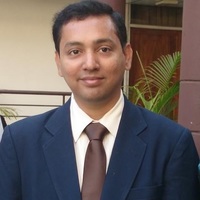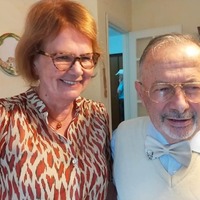
PROFESSOR EDWARD GOBINA
Professor Edward Gobina is an educator, scientist, an inventor, Principal innovator, knowledge Base leader, senior Fellow of the Higher Education Academy (SFHEA) and pioneer in integrated membrane technology. He has over 30 years experience and his scientific achievements are archived in 350+ scientific publications including 25+ granted and licensed patents and 25+ books. He leads the research-intensive Membrane/Processing Laboratory (CPIMT-www.rgu.ac.uk/eng/cpi/) and holds ta sponsored Senior Chair and Strategic Lead Consultancy at the Robert Gordon University (www.rgu.ac.uk; Tel: +441224262348; Email: e.gobina@rgu.ac.uk). His research has resulted in over £20 million in research and trans-continental investments and has successfully spun-out 3 University companies. His scientific roadmap includes carbon capture/utilization, hydrogen production/purification/storage, fuel cells, membrane catalysis, upgrading of wastes to value-added resources, fuel chemistry, fuel cells balance-of-plant integration, and energy transition to net-zero. He has won several high awards including year-on-year Scottish Enterprise Proof-of-Concept Awards for Outstanding Research ideas in 2001 and 2002, Gas2 Ceramic Membrane Sponsorship Award in 2008, Knowledge Transfer Partnership Certificate of Excellence Award in 2009, Best Knowledge Transfer Partnership for Scotland Award in 2010, Innovation Voucher Award in 2011 and the Canadian Global Grand Challenge (CCEMC) Award for Innovative Carbon Uses in 2014. He is member of the European Membrane Society (EMS), the UK Engineering Professors’ Council (EPC), North American Membrane Society (NAMS) and the New York Academy of Sciences (NYAS). Over the past 30 years he conceived, developed and implemented the research-informed strategy within the School of Engineering in which he identified durable links between research and teaching and used his research funding activities to fortify these linkages to enhance exceptional student experience and promote staff professional development. He has supervised over 22 PhD research students to completion as a Principal Supervisor.
Edward’s fifteen years of applied development programme with RGU spinout Gas2 Ltd culminated in the innovative Gas2 pMR™ CPOX process and its new GTL reactor which captured the attention of major global energy investment company Lime Rock Partners of the United States of America who provided £17.2 million ($24.03 million) in equity investment during 2008- 2013 for avoiding flaring and venting of unwanted associated gas. RGU biodiesel innovation was applied by Calder Cabs through an SFC Innovation Voucher to win the prestigious VIBES Award competition for Transport in 2011. In 2014 RGU E-FMTR innovation was the only University outside North America selected in Canada’s £25 million ($35million) Global Grand Challenge competition by the Energy Reduction Alberta (ERA) of Alberta, Canada from a total of 344 institutions from 5 continents who responded to the call. RGU used the £298,000 ($500,000.00) prestigious awards to develop innovative reconfigured E-FMTR for utilizing and recycling CO2. In 2019 RGU E-FMTR innovation constituted the cornerstone of the £4.7 million ($6.0 million) World Bank funding for boosting nanotechnology and renewable energy research in developing countries.
Edward’s research uses ceramics and metals prepared using several techniques such as melt-pressing, solution casting, phase inversion, sputtering, extruding, and interfacial polymerization. Modification techniques using dip-coating with atmospheric/vacuum enhancement, and rotation have been developed on tubular as well as flat sheet configurations. We research systems for gas and liquids purifications and reactions including fuel cells. Material flexibility enables crack-free membranes, and our dip coating process can be used to repair cracks if they occur. The rapid flow in our E-FMTR enables low surface area suitable for ‘drying' solvents, biofuels, and hydrogen and various other topics such as CO₂ capture from industrial effluents/atmosphere and reactor systems for intensification. This research area ‘’Carbontech’’ represents £4.7 billion ($6 trillion) per year in global economic opportunity to address net-zero targets. Edward’s work has resulted in over 200 high-impact journal publications, over 100 oral presentations in world congresses, 15 book chapters, 25 books, 22 licensed patents, over 22 PhDs supervised to completion, World Leading REF 2014 Research Impact Case Study and researcher endorsement by the Royal Academy of Engineering for the prestigious Exceptional Talent Visa (Tier 1) award.
Edward’s fifteen years of applied development programme with RGU spinout Gas2 Ltd culminated in the innovative Gas2 pMR™ CPOX process and its new GTL reactor which captured the attention of major global energy investment company Lime Rock Partners of the United States of America who provided £17.2 million ($24.03 million) in equity investment during 2008- 2013 for avoiding flaring and venting of unwanted associated gas. RGU biodiesel innovation was applied by Calder Cabs through an SFC Innovation Voucher to win the prestigious VIBES Award competition for Transport in 2011. In 2014 RGU E-FMTR innovation was the only University outside North America selected in Canada’s £25 million ($35million) Global Grand Challenge competition by the Energy Reduction Alberta (ERA) of Alberta, Canada from a total of 344 institutions from 5 continents who responded to the call. RGU used the £298,000 ($500,000.00) prestigious awards to develop innovative reconfigured E-FMTR for utilizing and recycling CO2. In 2019 RGU E-FMTR innovation constituted the cornerstone of the £4.7 million ($6.0 million) World Bank funding for boosting nanotechnology and renewable energy research in developing countries.
Edward’s research uses ceramics and metals prepared using several techniques such as melt-pressing, solution casting, phase inversion, sputtering, extruding, and interfacial polymerization. Modification techniques using dip-coating with atmospheric/vacuum enhancement, and rotation have been developed on tubular as well as flat sheet configurations. We research systems for gas and liquids purifications and reactions including fuel cells. Material flexibility enables crack-free membranes, and our dip coating process can be used to repair cracks if they occur. The rapid flow in our E-FMTR enables low surface area suitable for ‘drying' solvents, biofuels, and hydrogen and various other topics such as CO₂ capture from industrial effluents/atmosphere and reactor systems for intensification. This research area ‘’Carbontech’’ represents £4.7 billion ($6 trillion) per year in global economic opportunity to address net-zero targets. Edward’s work has resulted in over 200 high-impact journal publications, over 100 oral presentations in world congresses, 15 book chapters, 25 books, 22 licensed patents, over 22 PhDs supervised to completion, World Leading REF 2014 Research Impact Case Study and researcher endorsement by the Royal Academy of Engineering for the prestigious Exceptional Talent Visa (Tier 1) award.
less
Related Authors
Amal Abdou
Helwan University
Margarida ROMERO
Université Nice Sophia Antipolis
Monica Marquina
CONICET
Giulia Sissa
Ucla
Ram P . Bharti
IIT Roorkee
Sujit Sen
National Institute of Technology Rourkela
Marijana Ricl
University of Belgrade
Louis-André Dorion
Université de Montréal
David Perez II
Syracuse University
Ahmed El-Khatib
Sohag University










Uploads
Papers by PROFESSOR EDWARD GOBINA